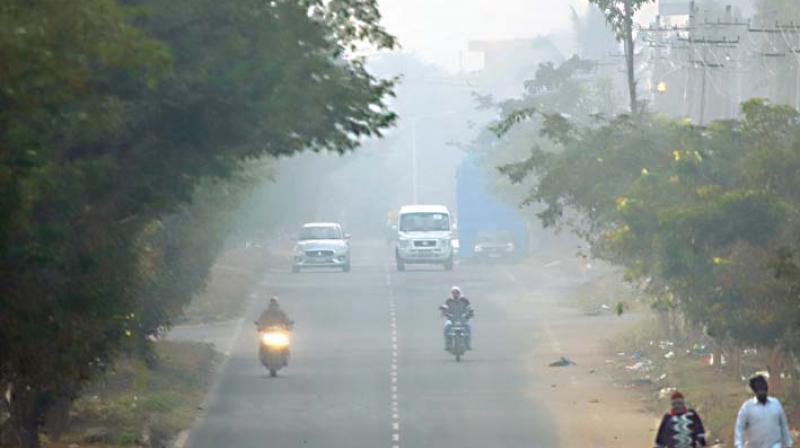Winter blues? Lack of sunshine leaves many in city depressed
While Dr Kiran Kumar K., MD (Psychiatry) at Narayana Multi-speciality Hospital.

Bengaluru: Feeling too low or uninterested in things lately? Is the winter laze proving to be a hindrance to Christmas-New Year celebrations?
While this may be common among many people as the mercury dips and days get shorter, but for some this is serious and implies that they are suffering from Seasonal Affective Disorder (SAD) - a form of depression during winters due to deprivation of sunlight.
In India, more than 10 million people experience similar symptoms of this usually self-diagnosable ailment.
City doctors point out that women are more susceptible and the age of onset is estimated to be between 18 and 30 years, but can affect any age group.
Dr Diwakar Goutham N., Consultant Neuropsychiatry at Narayana Health City said, “SAD is a condition affecting people of all age group perhaps more common in middle age. It is a kind of depression which mostly happens during the seasonal changes, especially winters, as the change in weather has an impact on mood and overall metabolic system. This condition could trigger due to deficiency of light and lack of Vitamin D.”
SAD symptoms include a depressed mood, feeling of hopelessness, a lack of energy, difficulty in concentrating, changes in sleep pattern and appetite, loss of pleasure in activities you once loved, and even thoughts of death or suicide.
Certain hormonal changes in the brain trigger SAD, said Dr Sheethal Brahmesh, Consultant - Internal medicine & Health check at Apollo Hospitals, Seshadripuram. "Serotonin is a hormone that affects our mood, appetite and sleep; a lack of sunlight may lead to underproduction of serotonin which in turn disrupts the pathways in the brain that regulate mood. Melatonin is a hormone that makes us feel sleepy; in people with SAD, the body may produce it in higher than normal levels. Also, light affects the biological clock in our brains that regulates circadian rhythms - a physiological function that may include mood changes when exposed to less sunlight,” she added.
While Dr Kiran Kumar K., MD (Psychiatry) at Narayana Multi-speciality Hospital, Whitefield highlighted that people who have been diagnosed with any form of depression or stress conditions are at a higher risk of SAD. “One should not take this condition too lightly, especially if the feeling of hopelessness is predominant, as it could also lead to suicidal thoughts. We see almost 1-2 cases in a month in winters and in the last five years we have seen almost 10% increase in such cases,” he said.
Experts say that staying hydrated, ensuring a balanced diet, incorporating lifestyle modifications such as regular exercise, meditation and essential exposure to sunlight will help manage SAD.
“Professional consultation and family support is of utmost importance. Various treatment modalities are available which includes psychotherapy, light therapy, and medications,” they added.

